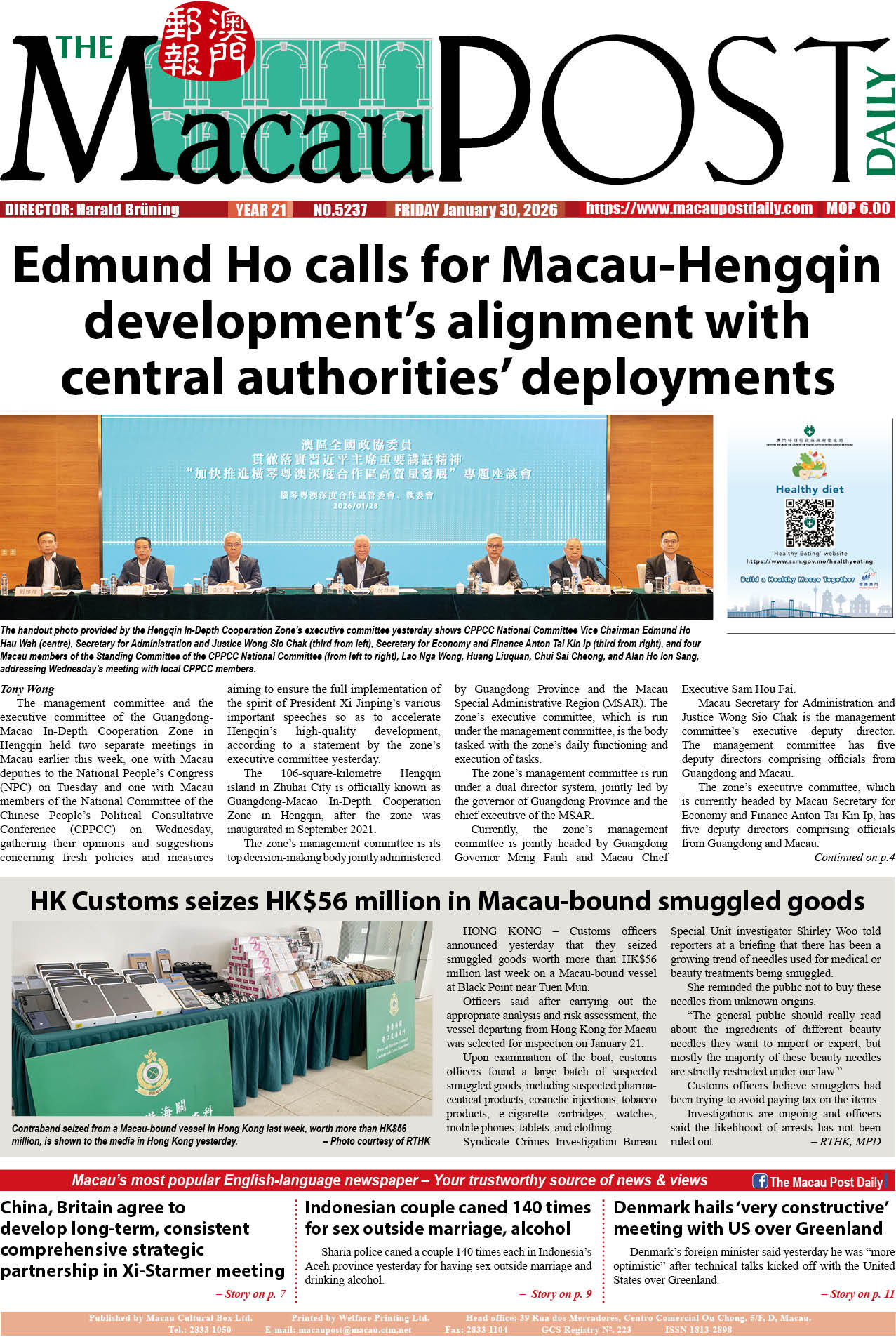The Novel Coronavirus Response and Coordination Centre said in a statement yesterday that with the arrival of the Chinese New Year (CNY), which falls on Sunday, and the cold weather, residents, especially senior citizens and people with severe chronic underlying diseases, should take appropriate measures to prevent being infected with COVID-19 and to protect their health.
In order to reduce the risk of being infected with COVID-19 or other respiratory infections, the bureau urged the public to get their COVID-19 and flu jabs on time. At the same time, they should also wear their facemask, maintain social distancing, wash their hands frequently and never touch their eyes, nose and mouth before cleaning their hands.
People should pay close attention to cough etiquette, which means they should cover their mouth and nose with a tissue or elbow when sneezing or coughing, after which they should dispose of their used tissue properly, the statement noted, which added that people should always allow plenty of fresh air in rooms, while senior citizens and people with chronic diseases should avoid staying in crowded places.
Those who develop symptoms such as fever, sore throat, runny nose and cough should seek immediate medical attention, try to stay at home and avoid using public transport, the statement underlined.
After the transition period of the novel coronavirus infection, COVID-19 has become an endemic disease in Macau, the statement pointed out.
Macau’s transition from its dynamic zero COVID-19 strategy to the removal of almost all restrictions began on December 8 and ended on January 8.
An endemic refers to a disease spreading in a community at the normal or expected level, according to the AdventHealth website.
The statement said that as new variants of the novel coronavirus emerge around the world, and as people-to-people exchanges between Macau and other countries and regions increase, it was expected that there will be periodic COVID-19 infection peaks from time to time, as was the case around the world, adding that with the increasing number of times people are going out for events and engage in more person-to-person contacts, the risk of disease transmission will also be increased.
The statement underlined that the elderly and people with severe chronic underlying diseases are still at higher risk of severe illness and could even die after being infected with COVID-19.
The majority of children and adolescents, i.e., those aged between one day and 18 years, infected with COVID-19 are asymptomatic or have mild symptoms, but they may develop a rare but severe paediatric multisystem inflammatory syndrome (MIS-C) for some time after recovery, even though it usually occurs between two and six weeks after infection, the statement said, adding that MIS-C is a group of symptoms such as persistent fever, vomiting, diarrhoea, stomach pain, rash, abnormal fatigue, rapid heartbeat, rapid breathing, red eyes, red or swollen lips and tongue, red or swollen hands and feet, headache, dizziness or heavy head, or swollen lymph nodes.
Parents of children who have recently been infected with COVID-19 should seek medical attention for them as soon as possible if they experience any of the symptoms or suffer from such as severe stomach pain, difficulty breathing, whitening, greying or bluing of the skin, lips or nail bed, confusion, drowsiness, and unconsciousness, the statement stressed.
The winter and spring seasons are also the influenza peak, the transmission of which in Macau is usually from January to March each year, and there will be another small peak from June to August, the statement noted, which pointed out that after receiving the influenza vaccine, it usually takes at least two to three weeks to produce enough antibodies to achieve the protective effect.

Residents and visitors walk in Largo do Senado viewing Chinese New Year (CNY) decorations last week. – Photo: MGTO








